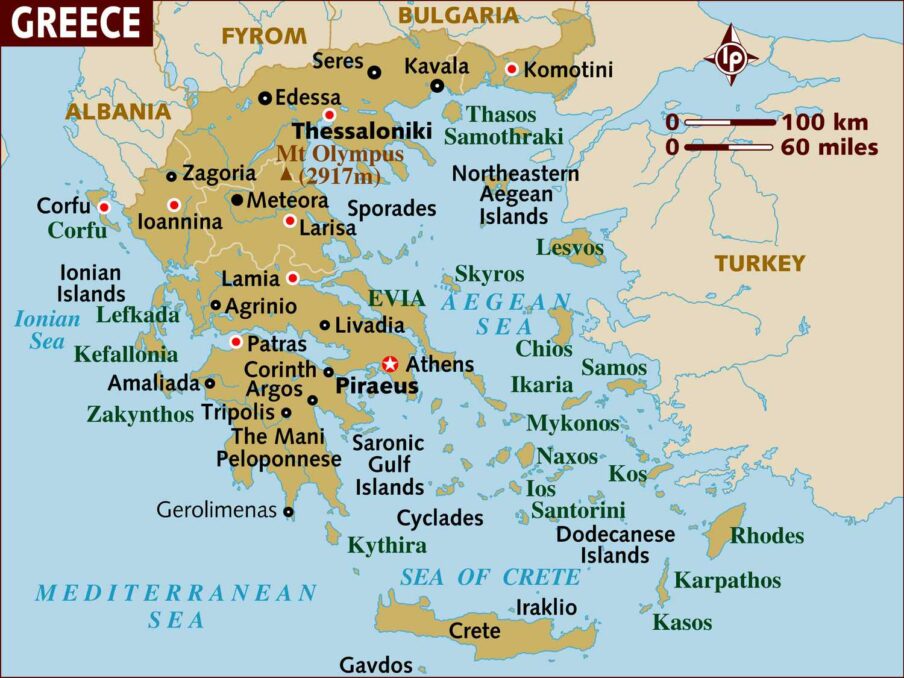June 26, Athens: Following his landslide victory Sunday in the country’s second election in five weeks, Kyriakos Mitsotakis, leader of the Conservative New Democracy party, pledged to accelerate reforms. Mitsotakis received a comfortable parliamentary majority to form a government for a second four-year term.

In Athens, enthusiastic supporters gathered outside the party headquarters to cheer, clap, light fireworks, and wave blue and white party flags. His party has just over 40.5% of the vote, crushing his main rival, the left-wing Syriza party, which was struggling to reach 18%, 2 percentage points lower than the previous elections in May. The results are almost complete.
Mitsotakis said in a speech on TV that Greece is starting a new important chapter after the election results. He said that the results gave him clear and strong permission to make important changes quickly for our country. They have, in a loud and mature manner, permanently broken a cycle of traumatizing lies and toxicity that held the nation back and divided society.
He said that during his second term as prime minister, he could make Greece develop quickly, increase salaries, reduce inequality, provide better and free public health care, improve the government with technology, and make Greece a strong country. The vote on Sunday came just over a week after a migrant ship sank off the western coast of Greece, killing hundreds of people and leaving others missing.
This raises questions about the actions of Greek authorities and the country’s strict policy on migration. However, the election was unaffected by the disaster, one of the worst to hit the Mediterranean in recent memory because voters were focused on domestic economic issues.

Due to a change in the electoral law that gives the winning party bonus seats, it was anticipated that Mitsotakis’ party would win 158 of the 300 seats in Parliament. He had decided to seek a stronger mandate in a second election rather than attempting to form a coalition government with a smaller party because the previous election in May, which was held under a proportional representation system, left him five seats short of a majority despite receiving nearly 41% of the vote.
However, voter participation was low on Sunday, with just under 53% of eligible voters voting, compared to just over 61% in the May election. Eight parties, including an ultra-religious party and a far-right party supported by a jailed former lawmaker from the Nazi-inspired and now outlawed Golden Dawn party, were exceeding the 3% threshold to enter Parliament.
55-year-old Mitsotakis ran on the promise of ensuring political stability and economic growth as Greece slowly emerged from a devastating financial crisis that lasted nearly a decade. Alexis Tsipras, his main rival, was prime minister from 2015 to 2019—some of the most turbulent years of Greece’s financial crisis. He is 48 years old. He is now fighting for his political survival after his performance on Sunday. He had struggled to mobilize his voter base following his poor performance in the elections in May, a task complicated by the formation of splinter parties by some of his former associates.
In a TV broadcast, Tsipras calmly said, “The election results are bad for us. ” We have suffered a big election defeat. However, I think that the election outcome is mostly negative for society and democracy,” he said, mentioning the three small right-wing parties that got enough votes to be in Parliament.
He said that the people in the party will decide what will happen to him and what the party should do next. Tsipras said that everyone in the party will have to evaluate us and come up with a plan to deal with these challenging situations.
Mitsotakis, a Harvard graduate, is from a prominent political family in Greece. Constantine Mitsotakis, his late father, was prime minister in the 1990s; his sister was a foreign minister; and his nephew is currently Athens mayor.
The younger Mitsotakis has pledged to rebrand Greece as a member of the eurozone that is supportive of business and fiscally responsible. So far, the strategy has worked. In May, New Democracy defeated Syriza, securing crucial victories over Socialist strongholds on the island of Crete and lower-income areas surrounding Athens, some of which were previously unheard of.

Even though the Mitsotakis government ran into scandals late in its term, like the wiretapping of senior politicians and journalists and the fatal train crash on February 28 that showed how unsafe public transportation was, voters seem happy to have a prime minister who made the economy grow and cut unemployment.
Sunday’s election was held under an electoral system that gives the winning party a bonus of 25 to 50 seats based on how well it did. This makes it easier for a party to get more than the 151 seats needed to form a government in the 300-member parliament.












